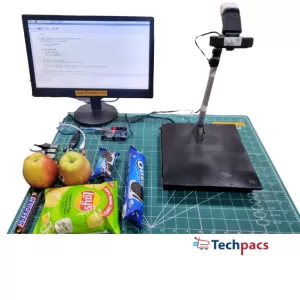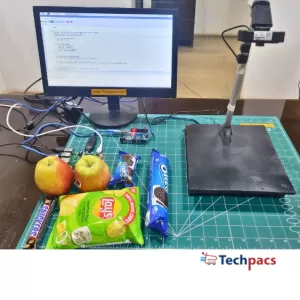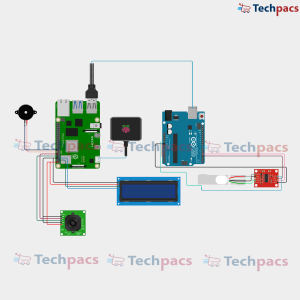FOPID-ANFIS Based Adaptive Charging System for Electric Vehicle Batteries
Problem Definition
Many existing strategies for managing and maintaining power flow in 10KW Dc MG and EV systems have limitations that hinder their effectiveness. One such approach proposed by authors involves a fuzzy-based controller, known for its ease of use. However, this method faces challenges such as power dissipation during perturbations, leading to instability, and difficulty in tracking power under dynamic weather conditions. The fuzzy inference technique used to regulate voltage also has its own flaws, as it relies heavily on human knowledge and requires frequent revisions, limiting its efficiency. Additionally, the fuzzy approach often provides multiple solutions to a single problem, creating confusion and reducing its usability.
These shortcomings highlight the need for a new method that can effectively charge EV batteries using solar energy, addressing the limitations of the conventional bidirectional paradigm.
Objective
The objective of this project is to overcome the limitations of existing fuzzy-based power flow controllers in managing power flow in 10KW Dc MG and EV systems. The proposed method involves using a Fractional Order PID (FOPID) controller and an Adaptive Neuro Fuzzy Inference System (ANFIS) controller for effective charging of EV batteries. The goal is to ensure stable power supply to loads and prevent damage to EV batteries, while also improving charging performance through the efficient utilization of solar energy. By incorporating advanced control algorithms and renewable energy sources, the project aims to develop sustainable and efficient charging solutions for electric vehicles.
Proposed Work
To overcome the limitations of the existing fuzzy-based power flow controllers and to address the challenges in managing power flow in a 10KW Dc MG and EV, this project proposes the use of a Fractional Order PID (FOPID) controller and an Adaptive Neuro Fuzzy Inference System (ANFIS) controller for effective charging of EV batteries. The primary goal of this proposed model is to ensure a stable power supply to the loads while preventing damage to the EV battery. The FOPID controller is chosen for its enhanced performance in comparison to the standard PID controller, particularly in terms of durability and reduced sensitivity to uncertainties in parameter estimation. By utilizing FOPID controllers, more precise and long-lasting regulating performances can be achieved in automotive automation scenarios.
In addition to the FOPID controller, a Maximum Power Point Tracker (MPPT) based technique is incorporated to extract maximum power from solar photovoltaic panels.
The MPPT approach helps in monitoring and adjusting the impedance of the PV arrays to ensure optimal power output, especially under fluctuating conditions like solar irradiation, temperature, and load variations. Together, the FOPID controller and MPPT technique aim to improve the charging performance of EV batteries through efficient utilization of solar energy. By utilizing advanced control algorithms and combining them with renewable energy sources, this project seeks to overcome the limitations of existing power flow control systems and contribute to the development of sustainable and efficient charging solutions for electric vehicles.
Application Area for Industry
This project can be applied in various industrial sectors such as renewable energy, electric vehicles, and microgrids. The proposed solutions of utilizing Fractional Order PID (FOPID) and ANFIS to charge EV batteries with solar energy can address specific challenges faced by these industries. For example, the use of FOPID controllers improves charging performance by providing a more precise and durable regulating performance compared to standard PID controllers. This is particularly beneficial in the field of automotive automation where accurate and long-lasting control is essential for EV battery health. Additionally, the integration of a Maximum Power Point Tracker (MPPT) technique with the FOPID controller ensures maximum power extraction from solar panels, even under fluctuating environmental conditions.
By optimizing power flow and voltage regulation, industries can increase efficiency, reduce power dissipation, and enhance overall system performance.
Application Area for Academics
The proposed project can significantly enrich academic research, education, and training by introducing a new and innovative approach for charging EV batteries using Fractional Order PID (FOPID) and Adaptive Neuro-Fuzzy Inference System (ANFIS). This research not only addresses the limitations of traditional bidirectional power regulation models but also provides a more effective and accurate solution for managing power flow in DC microgrids and electric vehicles.
The relevance of this project lies in its potential applications in pursuing innovative research methods, simulations, and data analysis within educational settings. Researchers, MTech students, and PhD scholars in the field of renewable energy, power systems, and control engineering can use the proposed code and literature to enhance their work and develop new solutions for sustainable energy management.
By incorporating FOPID controllers and ANFIS algorithms, the project covers a specific technology domain that is crucial for optimizing power systems and maximizing the efficiency of solar energy utilization.
The field-specific researchers can utilize the insights and methodologies from this project to improve their research outcomes and explore new possibilities in renewable energy integration.
In the future, this project can be further expanded to include real-time testing and implementation of the proposed system in practical EV charging stations and microgrids. By integrating advanced control techniques with AI-based algorithms, the project has the potential to revolutionize the way we manage power flow and energy distribution in sustainable infrastructure. This can lead to the development of smart grid technologies and autonomous energy systems that are efficient, reliable, and environmentally friendly.
Algorithms Used
The proposed work in this project involves using Fractional Order PID (FOPID) and Adaptive Neuro-Fuzzy Inference System (ANFIS) algorithms to optimize the charging process of Electric Vehicle (EV) batteries. The FOPID controller is employed to improve the charging performance by addressing issues with standard PID controllers, providing more precise and long-lasting regulation of power supply to the EV. The FOPID controller is also combined with a Maximum Power Point Tracker (MPPT) technique to enhance the extraction of power from solar photovoltaic panels, ensuring the system operates at peak efficiency even under varying conditions. Additionally, ANFIS is used to further enhance the system by providing adaptive and intelligent control capabilities, allowing for efficient and effective management of power supply to the EV while minimizing fluctuations to prevent damage to the battery. By combining these algorithms, the project aims to achieve optimal charging performance and improve the overall efficiency of the EV charging process.
Keywords
SEO-optimized keywords: fuzzy based controller, power flow management, renewable energy integration, Fractional Order PID, ANFIS, EV battery charging, MPPT, solar energy utilization, power electronics, energy efficiency, smart charging, electric vehicle technology, sustainable transportation, artificial intelligence, power scheduling, vehicle-to-grid, energy management, power fluctuation control, EV charging infrastructure.
SEO Tags
electric vehicles, bidirectional charging system, MPPT, Maximum Power Point Tracking, FOPID control, ANFIS, Adaptive Neuro-Fuzzy Inference System, energy management, power electronics, energy conversion, energy efficiency, EV charging infrastructure, Vehicle-to-grid, V2G, Smart charging, renewable energy integration, power scheduling, electric vehicle technology, sustainable transportation, artificial intelligence, fractional order PID, solar energy, power flow control, fuzzy model, dynamic climate conditions, battery charging, solar photovoltaic panels, power dissipation, fuzzy inference technique, voltage regulation, system efficiency, human abilities, fuzzy system limitations, fractional order controllers, automotive automation.
| Shipping Cost |
|
No reviews found!



















































No comments found for this product. Be the first to comment!